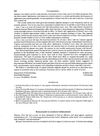 74 citations,
April 2005 in “Dermatologic Clinics”
74 citations,
April 2005 in “Dermatologic Clinics” Minoxidil and finasteride are effective for male hair loss, minoxidil for female hair loss, and various treatments like corticosteroids work for alopecia areata; treatment should be tailored to the individual.
 54 citations,
May 2018 in “Journal of The European Academy of Dermatology and Venereology”
54 citations,
May 2018 in “Journal of The European Academy of Dermatology and Venereology” Low level laser therapy works best for hair loss, followed by PRP, finasteride, and minoxidil.
 39 citations,
March 2009 in “Clinics in plastic surgery”
39 citations,
March 2009 in “Clinics in plastic surgery” Injection lipolysis effectively reduces small fat deposits and should be done with care and proper patient selection.
 39 citations,
January 2008 in “Journal of Endocrinology”
39 citations,
January 2008 in “Journal of Endocrinology” SCF and c-Kit decrease in AGA hair follicles, possibly affecting hair pigmentation and growth.
 17 citations,
August 2015 in “Expert Opinion on Pharmacotherapy”
17 citations,
August 2015 in “Expert Opinion on Pharmacotherapy” The document concludes that oral finasteride and topical minoxidil are effective for genetic hair loss, while other treatments for different types of hair loss show promise but need more research.
 15 citations,
May 2021 in “British journal of dermatology/British journal of dermatology, Supplement”
15 citations,
May 2021 in “British journal of dermatology/British journal of dermatology, Supplement” Cell therapy shows promise for treating severe psoriasis but needs more research to confirm safety and effectiveness.
 13 citations,
October 1993 in “International Journal of Dermatology”
13 citations,
October 1993 in “International Journal of Dermatology” Minoxidil effectively promotes hair regrowth in younger patients with small balding areas.
 10 citations,
June 2019 in “International Journal of Cosmetic Science”
10 citations,
June 2019 in “International Journal of Cosmetic Science” Some plant-based chemicals may help with hair growth, but more research is needed to confirm their effectiveness.
 August 2018 in “Journal of The American Academy of Dermatology”
August 2018 in “Journal of The American Academy of Dermatology” Oral alitretinoin is effective for certain types of chronic hand eczema, with mild side effects.
 January 2015 in “Hair therapy & transplantation”
January 2015 in “Hair therapy & transplantation” Some botanical products may help increase hair growth in people with alopecia, but more research is needed.
 June 2011 in “Expert Review of Dermatology”
June 2011 in “Expert Review of Dermatology” Researchers discovered potential origins and new treatments for skin cancer, including biomarkers for melanoma and therapies that reduce tumor growth.
 January 2004 in “Side effects of drugs annual”
January 2004 in “Side effects of drugs annual” Certain skin drugs and topical agents, including some natural extracts and fragrances, can cause allergic reactions. Some hair dyes and extensions, as well as minoxidil, a hair growth treatment, can also cause allergies. Botulinum toxin A can effectively reduce sweat but may have temporary side effects.
 76 citations,
January 2007 in “American Journal of Clinical Dermatology”
76 citations,
January 2007 in “American Journal of Clinical Dermatology” Women with PCOS often have skin problems like excessive hair, acne, hair loss, and dark patches, which can be treated with hormonal and non-hormonal therapies.
 75 citations,
January 2014 in “Korean Journal of Urology”
75 citations,
January 2014 in “Korean Journal of Urology” 5α-reductase inhibitors can cause sexual problems, higher risk of aggressive prostate cancer, and depression.
 72 citations,
October 1998 in “Baillière's clinical endocrinology and metabolism”
72 citations,
October 1998 in “Baillière's clinical endocrinology and metabolism” Long-term testosterone therapy can cause hormone suppression, affect prostate and heart health, and alter physical characteristics, but does not increase prostate cancer risk and needs more research for full risk assessment.
 69 citations,
April 2010 in “Dermatologic Surgery”
69 citations,
April 2010 in “Dermatologic Surgery” Bimatoprost is a safe and effective treatment for making eyelashes longer, thicker, and darker.
 47 citations,
December 2019 in “Biomaterials”
47 citations,
December 2019 in “Biomaterials” Scientists have created a new hair loss treatment using ultrasound to deliver gene-editing particles, which resulted in up to 90% hair regrowth in mice.
 47 citations,
August 2016 in “Fitoterapia”
47 citations,
August 2016 in “Fitoterapia” Some herbs and their components might help treat hair loss by affecting various biological pathways, but more research and regulation are needed.
 41 citations,
November 1987 in “British Journal of Dermatology”
41 citations,
November 1987 in “British Journal of Dermatology” Ketoconazole cured about 70% of cutaneous leishmaniasis cases caused by Leishmania major.
 39 citations,
August 2008 in “Growth hormone & IGF research”
39 citations,
August 2008 in “Growth hormone & IGF research” Raspberry ketone may help grow hair and improve skin elasticity.
 34 citations,
December 2012 in “Indian Journal of Dermatology, Venereology and Leprology”
34 citations,
December 2012 in “Indian Journal of Dermatology, Venereology and Leprology” Mesotherapy shows promise for cellulite and facial rejuvenation but has mixed results for body sculpting and hair loss, with more research needed for safety and effectiveness.
 29 citations,
March 1983 in “Journal of The American Academy of Dermatology”
29 citations,
March 1983 in “Journal of The American Academy of Dermatology” New treatments for psoriasis have improved effectiveness and may reduce long-term side effects when combined with standard therapies.
 22 citations,
November 1998 in “Archives of Dermatology”
22 citations,
November 1998 in “Archives of Dermatology” Alternative medicine lacks scientific support and relies on the placebo effect, but remains popular and integrated into German healthcare.
 16 citations,
April 2014 in “Expert Opinion on Pharmacotherapy”
16 citations,
April 2014 in “Expert Opinion on Pharmacotherapy” Teriflunomide is an effective and safe first-line oral treatment for relapsing multiple sclerosis.
 16 citations,
June 2008 in “Springer eBooks”
16 citations,
June 2008 in “Springer eBooks” Over 50% of women over 50 experience hair loss, with minoxidil being the only proven effective treatment.
 14 citations,
January 1985 in “International Journal of Dermatology”
14 citations,
January 1985 in “International Journal of Dermatology” The cause of alopecia areata was unknown, and while various treatments existed, no best treatment was agreed upon.
 12 citations,
January 2011 in “Dermatologic Surgery”
12 citations,
January 2011 in “Dermatologic Surgery” Retinoids can prevent skin cancer in high-risk people but have side effects and require more research on dosing and effectiveness.
 10 citations,
January 2016 in “Elsevier eBooks”
10 citations,
January 2016 in “Elsevier eBooks” Nanoparticles can speed up wound healing and deliver drugs effectively but may have potential toxicity risks.
 9 citations,
April 2021 in “Expert opinion on pharmacotherapy”
9 citations,
April 2021 in “Expert opinion on pharmacotherapy” Clascoterone is a new, effective, and safe acne treatment without systemic side effects.
 9 citations,
February 2011 in “Biologics: Targets & Therapy”
9 citations,
February 2011 in “Biologics: Targets & Therapy” Topical calcineurin inhibitors, especially 0.1% tacrolimus ointment, are effective and well-tolerated for treating cutaneous lupus erythematosus but require more research for standard treatment guidelines.






























